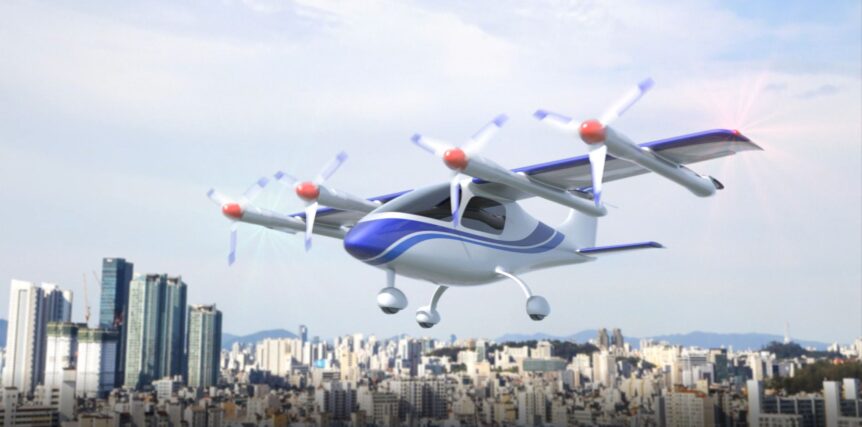Single-seat ultralight aircraft are a popular part of personal aviation and a small part of the growing electric Vertical Take Off and Landing (eVTOL) market. We look at two contenders here, and compare them to a newly-certificated single-seat fixed-wing solar-assisted airplane. KARI’s QTP-UAV KARI – the Korean Aerospace Research Institute – has developed the QTP-UAV, or Quad Tilt-Prop Unmanned Aerial Vehicle. It’s designated as yet another acronym – OPPAV, Optionally Piloted Personal Air Vehicle Technology Demonstrator. Citing the “Emerging market competition for urban air mobility,” KARI sees their craft as a means to reduce the “enormous social costs resulting from traffic increase on the ground.” A huge number of Korean organizations joined the effort develop the OPPAV demonstrator. “Korean companies (KAI, Hyundai Motors, Hanwha System, VesselAerospace, KAT, Doota, EDT, and RealtimeWave), research institutes (KIAST and KOTI), and Konkuk University formed a consortium for the program sponsored jointly by the Ministry of Land, Infrastructure, and Transport (MOLIT) and the Ministry of …
Tag Archive
Below you'll find a list of all posts that have been tagged as “LIFT Aircraft”

